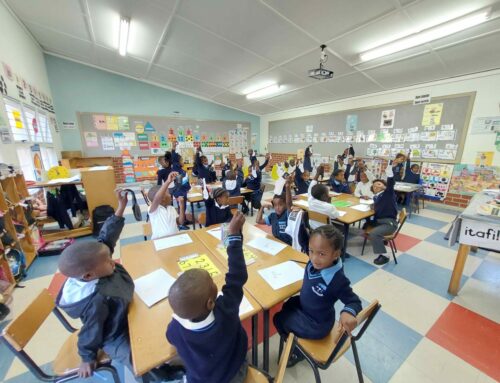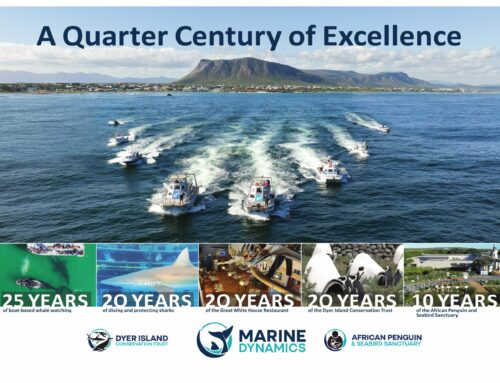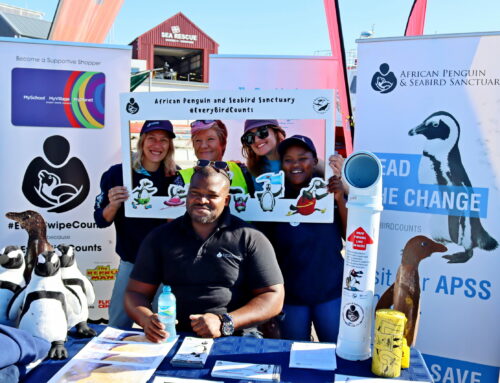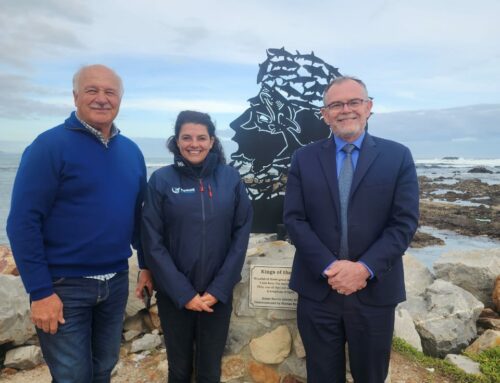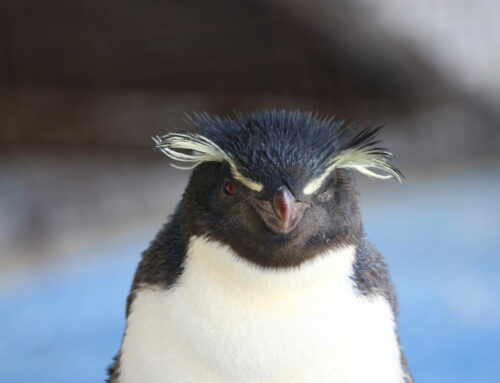On Monday 9 October, early morning, Marine Dynamics received a call from a concerned hiker on Die Plaat, just off De Kelders. Gansbaaier Aaron Stemmett was hiking with a group of students when they came upon, what they thought was a Southern Right Whale calf, and hoping that it was still alive, tried pushing it back into the ocean.
Aaron phoned Marine Dynamics asking for assistance, since the tide was coming in and he didn’t want to risk the students being in the water.
The Marine Dynamics team immediately responded, armed with a net and buckets to keep the whale wet, whilst trying to save it. They phoned marine conservation partners, Dr Els Vermeulen from the UP Mammal Research Institute Whale Unit, who immediately left Hermanus.
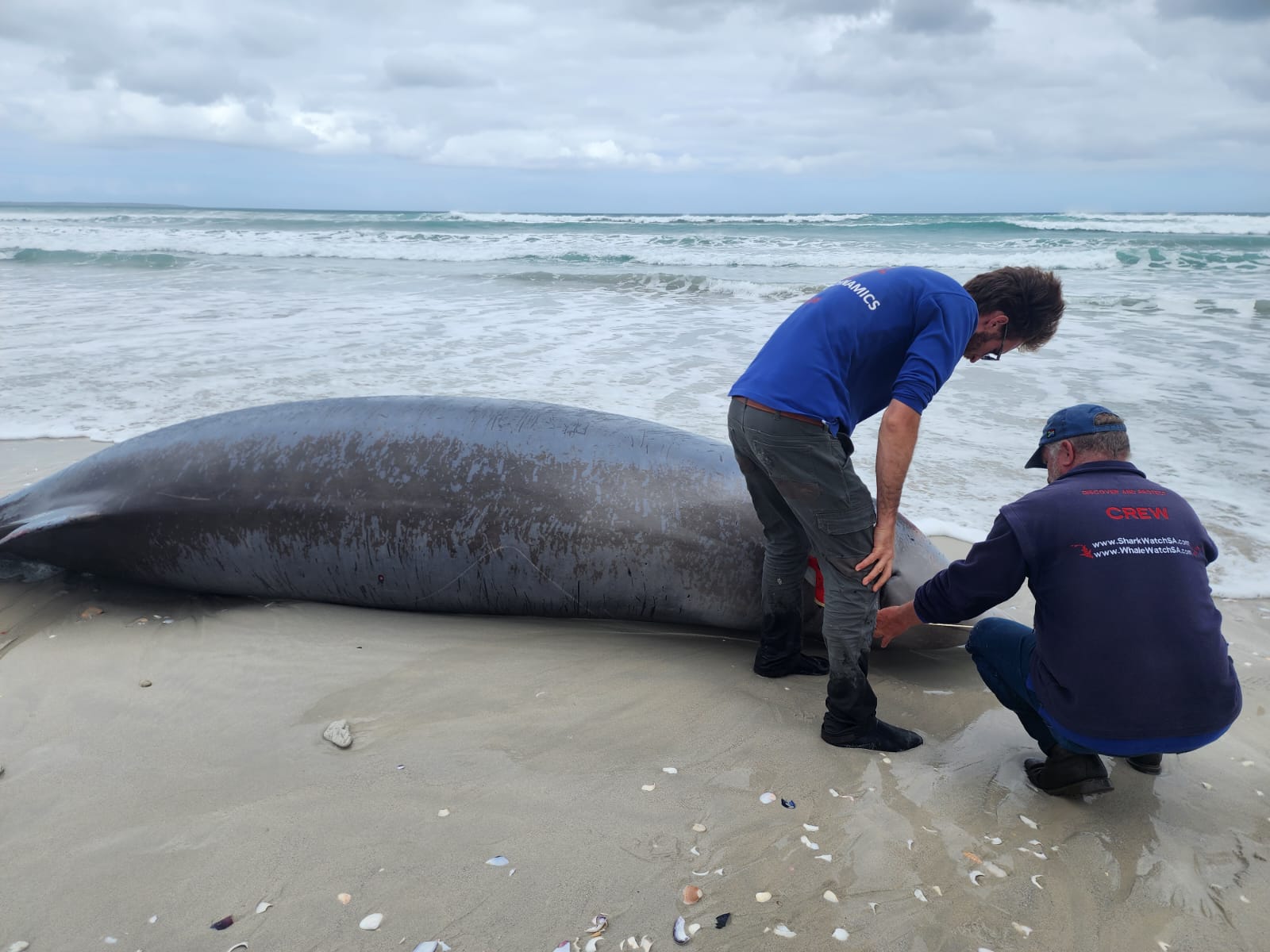
After some serious 4x4ing on Die Plaat, the team realised that the only way to reach the whale was on foot. And so a journey of 40 minutes in loose sand started to reach the whale.
It was a huge surprise to find a Cuvier’s Beaked Whale, hardly ever seen in South African waters, stranded on the beach.
Unfortunately, upon arrival, it was confirmed that the beautiful Cuvier’s Beaked Whale was already dead.
“You could tell from the gull bite marks on the whales face area, that he was already dead for a while and the birds started eating at the skin” confirmed CEO of Marine Dynamics and Founder of the Dyer Island Conservation Trust, Wilfred Chivell.
For Chivell, who has been around the globe to watch whales – and who has in-depth knowledge about these mammals, their behavior, and migrating patterns, it was a very sad day…
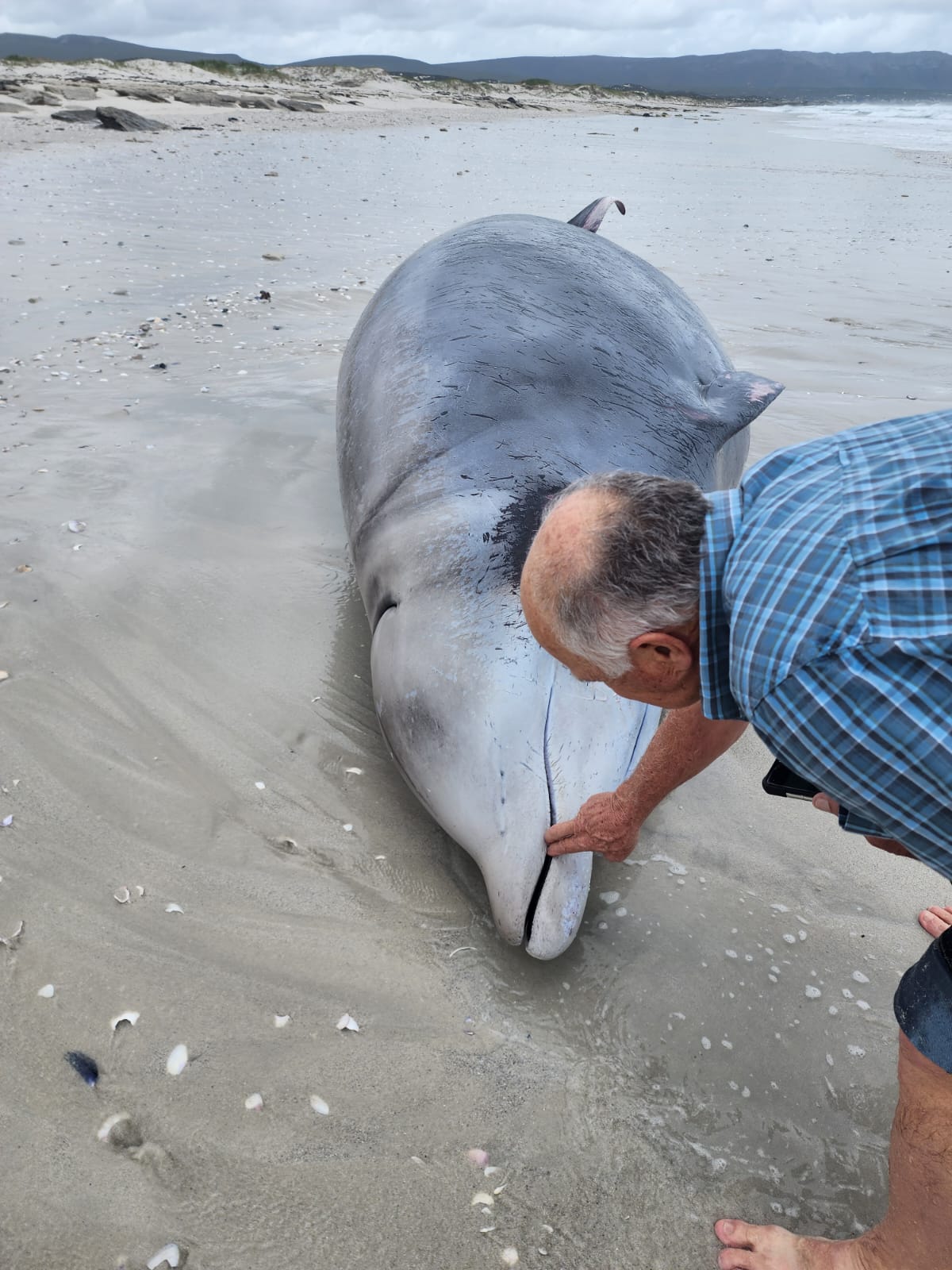
There are about 90 species of whales, scientifically known as cetaceans, in our oceans – and many of them Chivell has seen, dived with- and photographed. Except, for the Cuvier Beaked Whale.
“To see this mysterious almost dolphin-like creature for the first time in such a way is not what I had hoped for our first meeting”.
Wilfred’s son, skipper and marine conservationist, Dickie Chivell said that he “once had the amazing chance to see these majestic creatures in Guadeloupe, whilst filming a shark documentary.
Ralph Watson, lead scientist at Marine Dynamics Dyer Island Conservation Trust, immediately got to work to take measurements and collect samples for further research about these majestic creatures of the deep blue.
Dr Vermeulen and her UP Mammal Research Institute Whale Unit team arrived and did further samplings for research. The team confirmed that it was an adult female of about 5.5m long. Samples were taken of the skin, blubber and muscle to further understand this species. Cuvier’s beaked whales are the most widely distributed beaked whale. They are pelagic (open ocean) animals, that inhabit deep waters (of at least >300m deep). Due to this offshore habitat, very little is known about these animals, and thus samples from strandings like these are very important. From external assessments, the cause of death could not be determined. The Department of Forestry, Fisheries and the Environment confirmed attending to the stranding for further research.
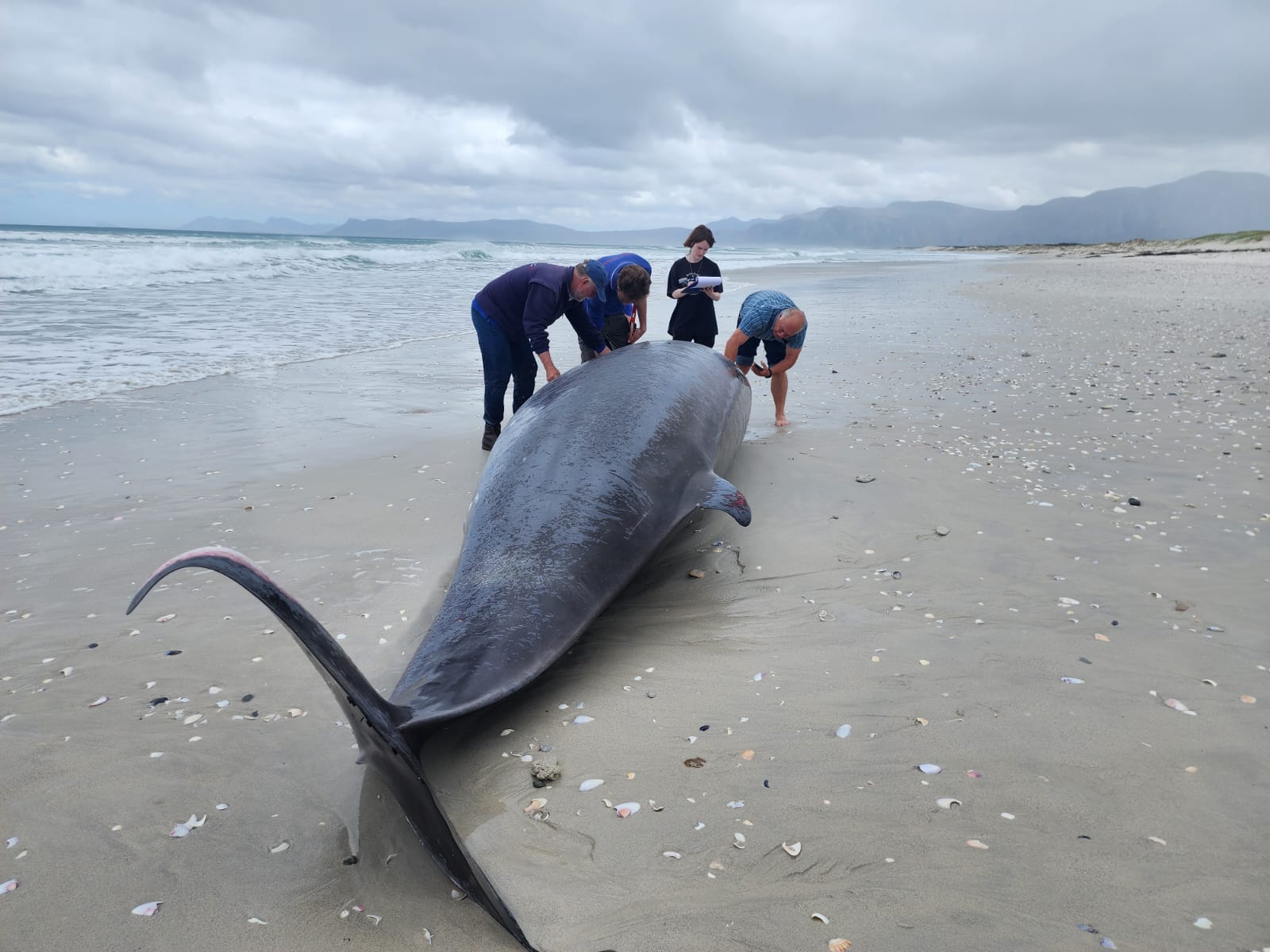
The Marine Dynamics team found a young, underweight, cormorant on their trek back to their 4×4, that was immediately taken their African Penguin and Seabird Sanctuary for treatment. Veterinarian Dr Liezl Pretorius confirmed that the cormorant was weak because of lack of food, and will be kept at the APSS, until he has gained weight and strength to return to Die Plaat.
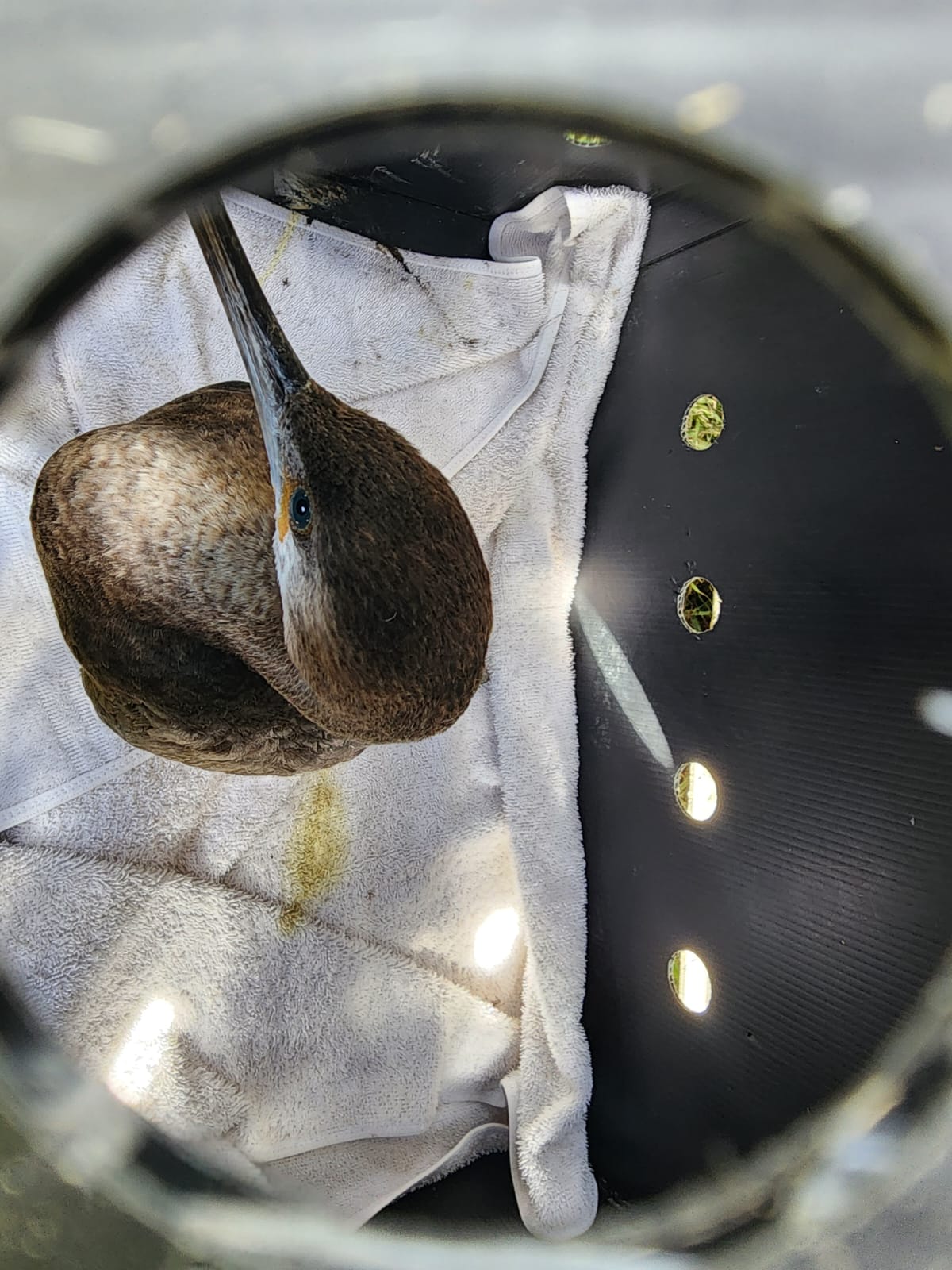
Visit the African Penguin and Seabird Sanctuary help support the team in looking after the endangered African Penguins and all other seabirds.
https://dict.org.za/dict-projects/african-penguin-seabird-sanctuary/
To report entangled, sick, injured or stranded marine life in Gansbaai and surrounds, please contact the Marine Dynamics team at: 072 598 7117.

